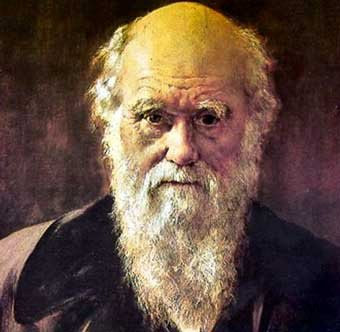
Happy Birthday Chuck!
Today is the 200th birthday of Charles Darwin, the Father of Modern Biology.
My survey of the morning newspapers indicates that most include articles on Mr. Darwin including a nice Opinion piece in the New York Times: http://www.nytimes.com/2009/02/12/opinion/12judson.html
I also immensely enjoyed the article in this week's Economist, excerpts from which, follow:
The idea of evolution by natural selection is not hard to grasp. It just requires connecting some uncontentious propositions. These are that organisms vary from one another, even within species, and that new variation can arise from time to time; that some of this variation is passed from parent to offspring; and that more individuals are born than can exist in the available space (or be sustained by the available resources). The consequence is what Darwin described in his book as a "struggle for existence". The weakest are eliminated in this struggle. The fit survive. The survivors pass on their traits to their offspring. Over enough time, this differential transmission of characters will lead to the formation of a new species.
...
Darwin's theory explained why species were so well adapted to their environment and how new species would form. It suggested that all living things were related, from the beetle to the lotus, and that everything descended ultimately from a single common ancestor. Evolution thus removed the need for divine explanations of diversity and, along with evidence emerging at that time of the extreme age of the Earth, it further suggested that the wider universe might also owe nothing to divine intervention and everything to natural laws. Darwin understood all of this and was greatly troubled.
The Economist article also notes that the acceptance of Darwin's propositions varies widely across the globe. "In the United States a Gallup poll conducted last year found that only 15% of people agreed with the proposition that 'humans developed over millions of years', up from 8% in 1982." A graph included in the article shows that the general acceptance of evolution varies widely among the countries of the world. In Iceland, Denmark, and Sweden public acceptance exceeds 75%. The United States falls between Greece and Turkey at around 35%.
Not surprisingly, the Economist concludes that "a country's belief in evolution is inversely correlated with it's belief in God."
However it is interesting to note that different sects regard the theory quite differently.
"We're not out to bash Darwin, he wasn't a God-hater out to destroy Christianity," says Tommy Mitchell of the Creation Museum in Petersburg, Ky., who will speak there on Darwin's life Thursday. "We would argue his observations hang on a bad starting point. He just never had a biblical worldview and that led him to his conclusions.
On the other hand, Catholic theologian John Haught of Georgetown University, author of God After Darwin: A Theory of Evolution, notes that the Vatican accepts evolution. Evolution fits comfortably with religious belief, he says, unless you view the Bible as a "literal source of scientific or technical information." (USA Today 2/17/2009)
My personal interest in Mr. Darwin and his propositions is not simply that it discomforts the clerics - as much as I DO enjoy that salutary result. Rather, it is that the field of evolutionary biology and its offshoots will likely be the source of much very useful knowledge in the coming years. The deciphering of the human genome promises great advances in both medicine and our understanding of our common human nature.
I, for one, will be happy to be the first in line for gene therapy (derived from embryonic stem cells or otherwise) to replace or repair some of my soon to be failing joints and organs.
And likewise, I eagerly await the results of the genetic research into such varied questions as the evolutionary basis for and persistence of homosexuality; and why the historical belief in a god or gods seems to have been a universal human trait.
We live in exciting times.


















No comments:
Post a Comment